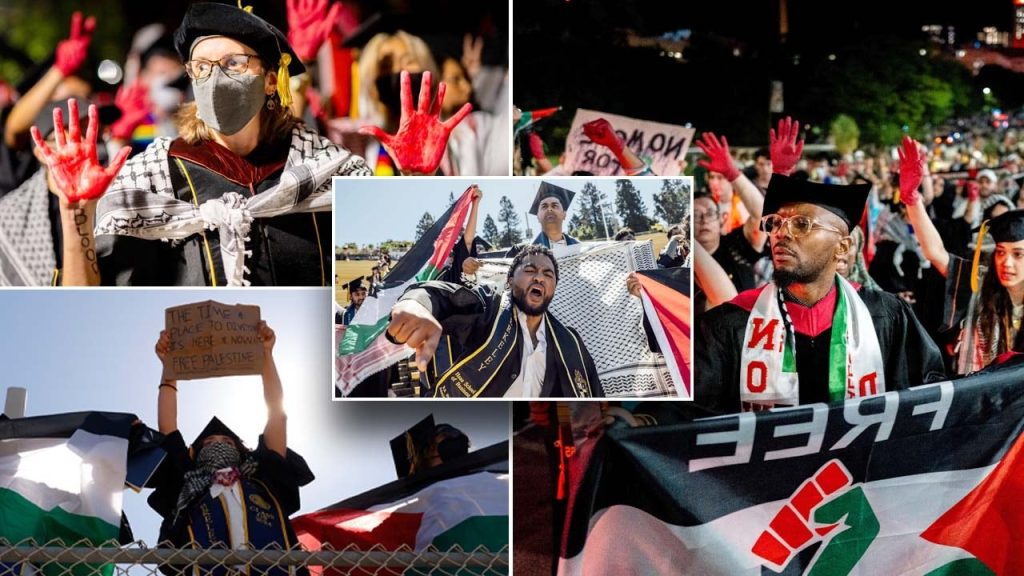Anti-Israel agitators in the U.S. disrupted numerous commencement ceremonies in response to the Israel-Hamas war, causing varying levels of disruption. At Virginia Commonwealth University, students and families walked out during Gov. Glenn Youngkin’s speech, with some supporting Palestinians and others signaling opposition to the governor’s education policies. Police used tear gas at the University of Arizona to disperse demonstrators who set up an encampment on campus. At the University of Wisconsin-Madison, a silent protest took place during commencement, with demonstrators agreeing to dismantle their encampment in exchange for the opportunity to engage with university decision-makers.
At the University of North Carolina, Chapel Hill, anti-Israel protesters splattered red paint on the steps of a building housing the chancellor’s office, with demonstrators circling the Old Well and holding a moment of silence for those killed in Gaza. University of Texas, Austin saw a student holding a Palestinian flag on stage during commencement before being escorted away, while protesters later walked out with a “Free Palestine” flag. At the University of California, Berkeley, hundreds of anti-Israel protesters disrupted a commencement ceremony by waving flags and chanting. Duke University students staged a walkout during Jerry Seinfeld’s commencement speech, with some chanting “free Palestine” as Seinfeld, a supporter of Israel, was introduced.
Demonstrators at various universities expressed their opposition to Israel through disruptive actions during commencement ceremonies, leading to numerous arrests on campuses across the country. The disruptions, which included walkouts, flag-waving, and chanting, reflect a broader trend of activism in response to the Israel-Hamas conflict. Despite the disruptions, commencement ceremonies continued, with those targeted by protesters managing to deliver their speeches. The disruptions follow weeks of demonstrations and encampments on campuses, with protesters seeking to draw attention to the conflict in the Middle East and pressure universities to take action in solidarity with those affected by the war.
The anti-Israel protests at universities highlight the deep divisions and tensions surrounding the Israel-Hamas conflict, with supporters of both sides engaging in confrontational and disruptive behavior. The clashes also raise questions about free speech, activism, and the role of universities in addressing global conflicts. While some view the protests as a legitimate form of activism and expression, others criticize the disruptions as disrespectful and divisive. As the Israel-Hamas conflict continues to escalate, the demonstrations on college campuses serve as a microcosm of the broader debate over the Palestinian-Israeli conflict and the role of the U.S. in mediating peace in the region. The disruptions at commencement ceremonies underscore the challenges of navigating complex geopolitical issues within the context of higher education.


